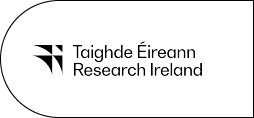PRESS RELEASE
06/04/2023
EU climate-smart rewilding project planned for Galway
Blanket bog site one of eight selected across the bloc for €8.5m wildE project
INSIGHT SFI RESEARCH CENTRE FOR DATA ANALYTICS, GALWAY, IRELAND: A new project funded by Horizon Europe called wildE, launched today, is to develop climate-smart rewilding as a nature-based solution to the twin threats of climate change and biodiversity loss in eight sites across Europe.
The Irish rewilding initiative will take place on lands in Galway including Ireland’s largest wind farm, the Galway Wind Park (GWP) that is being restored as part of the EU Life Multi-Peat project. The Insight SFI Research Centre for Data Analytics is a wildE research partner and will provide advanced data analytics techniques to support the project.
Rewilding is an approach to landscape management with an emphasis on allowing ecosystems to evolve with little to no human intervention. Until now the approach has mostly been limited to local conservation initiatives scattered across the continent without a systematic consideration of aspects of climate change mitigation or adaptation. Climate-smart rewilding as developed by wildE aims to overcome these barriers by taking a more holistic approach that considers climatic, economic and societal challenges.
Project lead Niall Ó’Brolcháin of the Insight SFI Research Centre for Data Analytics, a partner in the project, said: ‘wildE is an exciting new €8.5million EU project involving 22 partners from across Europe researching climate-smart rewilding as a solution to the twin threats of climate change and biodiversity loss.
‘In Ireland the Insight SFI Centre for Data Analytics is teaming up with the department of Geography in the University of Galway to examine ways to improve biodiversity and reduce carbon loss at Ireland’s largest wind farm the Galway Wind Park over the next four years. Based on ecological data collected during the project the Insight SFI Research Centre will use advanced data analytics techniques to build evidence-based policy recommendations for EU and national policies.’
The European Union has set out ambitious goals to combat the climate crisis and biodiversity loss. The EU Biodiversity Strategy for 2030 aims to restore significant areas of degraded ecosystems and to legally protect 30% of Europe’s territory, with 10% under strict protection. In turn, the EU Climate Law legally binds the member states to become climate neutral by 2050. The restoration of degraded bogs has been identified as a key action in support of natural carbon capture worldwide. In Ireland, Atlantic Blanket bogs once covered an area of over 773,000 ha. Centuries of degradation due to draining, cutting and, more recently, afforestation and overgrazing have depleted this habitat by more than 80%.
NOTES FOR EDITORS
wildE
wildE unites experts from the environmental sciences, social sciences and economics to address climate-smart rewilding solutions. In-depth research at eight carefully selected sites across Europe and with a broad range of stakeholders will assess how such solutions can effectively support nature and people whilst being economically viable. Through the use of detailed surveys and models, wildE will evaluate the potential impact of rewilding on carbon and biodiversity, as well as its ability to help the EU achieve its climate, land use, economic and societal goals, today and in a warmer future.
wildE will work closely with policy makers, local communities and companies to produce new insights, methods and tools for climate-smart rewilding. A new web platform, the Rewilding Knowledge Hub, will provide space for stakeholders to collaborate on rewilding challenges and opportunities.
The project is bringing together 22 European organisations, combining the latest scientific research with practical implementation. To find out more, visit https://www.wilde-project.eu/ and follow @wildE
wildE Case Study Description – Galway, Ireland
The Connemara Bog Complex consists of over 49,000 ha of blanket bog with varying conservation statuses. This Rewilding Case will be based on a project which restores areas on private lands within Ireland’s largest wind farm, the Galway Wind Park (GWP). Specifically, the GWP contains two parcels of degraded blanket bog of 155 ha and 62 ha each. Their restoration will improve the nationally important wintering area of the Greenland white fronted goose and increase the connectivity of the natural areas within the surrounding Special Area of Conservation (SAC) network. Lastly, the GWP endeavours to ensure its activities are carbon balanced and to maximise the potential for sequestration of carbon and restoration of the blanket bog.
The Insight SFI Research Centre for Data Analytics
The Insight SFI Research Centre for Data Analytics is one of Europe’s largest data analytics research organisations, with over 450 researchers, more than 80 industry partners and €150+ million in funding. Its research spans Fundamentals of Data Science, Sensing and Actuation, Scaling Algorithms, Model Building, Multi-Modal Analysis, Data Engineering and Governance, Decision Making, and Trustworthy AI.
Insight is made up of four host institutions at DCU, University of Galway, UCC and UCD. Insight’s partner sites are Maynooth University, Tyndall, TCD and UL.
As partners of the EU’s wildE project, the Insight SFI Centre for Data Analytics and the Department of Geography in the University of Galway will examine GHG emission reductions on the peatlands and their interaction with the GHG impacts of the wind farm. Blanket bog area and depth is not well mapped; Insight will contribute to a habitat mapping and management document and develop long-term blanket bog management policies based on evidence from the data collected, that lay out the conditions suitable for blanket bog formation with a view to minimising GHG emissions and encouraging carbon sequestration. Building on data from flora and fauna surveys, Insight will identify areas of high restoration potential in degraded blanket bog habitat.

